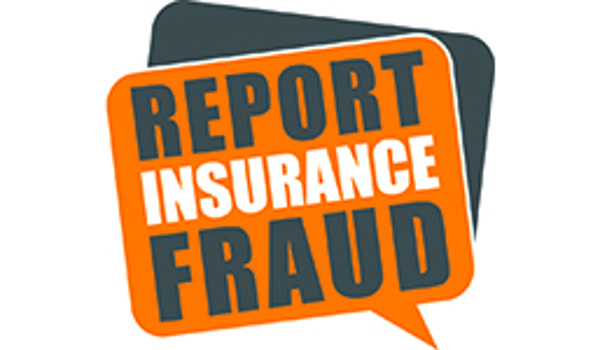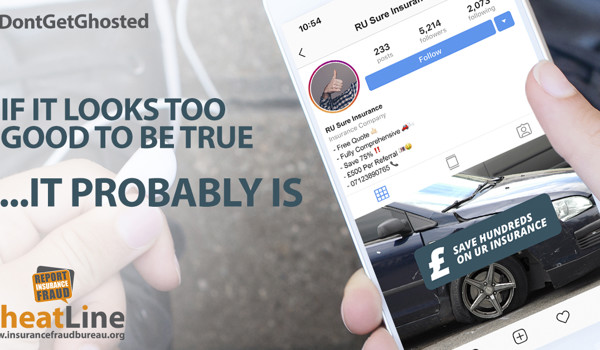The dark side of Ghost Broking: Fraudster sentenced for dealing motor insurance which resulted in drugs gang being able to operate undetected

A ‘Ghost Broker’ was recently sentenced for selling fraudulent motor trade insurance policies to an organised criminal group, which in turn is believed to have helped the gang carry out drug crimes on UK roads without being stopped in their tracks by police for no insurance.
The outcome follows an investigation from the Insurance Fraud Bureau (IFB) after it was approached by Lancashire Police to help identify suspected fraudulent activity believed to be linked to a string of vehicles the gang were known to be using.
IFB was able to work with its network of insurers and unique access to industry data to identify Tan Lam Le from Birmingham had been acting as a ‘Ghost Broker’. By providing the gang with fraudulently obtained motor trade insurance policies a total of 59 vehicles were able to evade police ANPR (automatic number plate recognition) detection for no insurance.
Father-of-four, Le, recently appeared at Preston Town Court where he received a 14-month suspected sentence and 200 hours’ community service after pleading guilty to two counts of fraud by false representation.
Le managed to profit over £90,000 from his criminal activity with payments stemming from regions across the UK which is now being recovered via the Proceeds of Crime Act (POCA).
“The case of Tan Lam Le and his associates is a clear demonstration of the serious criminal activity we can find connected to insurance fraud and the risk of harm to the wider public.
“Thanks to the collaborative work by the insurance industry, the IFB are pleased to have been able to support Lancashire Police’s successful disruption of the criminal network of which Le was an integral part.
If a member of the public suspects insurance fraud has taken place, they can help fight fraud by reporting this to the IFB’s CheatLine on 0800 422 0421.” - Stephen Dalton, Head of Intelligence and Investigations at IFB.
Following Le’s sentencing, 15 members of the criminal group received a total of more than 37 years’ imprisonment for their involvement in the production of large-scale cannabis farms, with the court hearing how some of the cannabis workers involved were working to repay debts after being smuggled into the UK.
‘Ghost Brokers’ or ‘Ghost Broking’ is a term often used to describe fraudsters who pose as genuine Insurance Brokers to sell fraudulent motor insurance policies to both unsuspecting members of the public and criminals.
While some Ghost Brokers operate by solely doctoring fraudulent motor insurance certificates, others steal personal details in order to take out a policy with a real insurance company so it is registered on the Motor Insurance Database (MID).
When a vehicle is not registered as insured it will flag on ANPR, enabling roads police to make further enquiries at the roadside with an uninsured driver potentially having their vehicle seized. Criminals using the road who do not want to use their own details to take out insurance will take advantage of ‘Ghost Broking’ in the hope their criminal activity can continue without disruption.
The Insurance Fraud Bureau (IFB) is a not-for-profit organisation that acts as a central intelligence hub for the insurance industry and works with law enforcement to detect and disrupt organised insurance fraud.
Every year IFB sees cases of ‘Ghost Brokers’ who are providing their ‘services’ to both unsuspecting members of the public and criminals who use the road for their crimes. Examples of these crimes include drugs dealing, firearms trading and even human trafficking.
In one shocking instance IFB supported the successful prosecution of a criminal gang who were using fraudulent insurance policies to transport vulnerable women from Eastern Europe around the UK, after they were trafficked into the country and exploited as adult sex workers.
‘Ghost Brokers’ more commonly operate on social media, targeting members of the public who are often younger or from vulnerable communities by offering car insurance deals that are too good to be true. While there is a degree of public awareness surrounding the consequences of online fraud, there is concern consumers purchasing such ‘good deals’ may inadvertly find themselves committing fraud and funding wider criminal activity.
Consumers are advised that if buying through an Insurance Broker, to check that the seller is registered with the British Insurance Brokers’ Association (BIBA). If buying directly through an insurer, a check can be made to see if they are a member of the Motor Insurers’ Bureau (MIB).
Insurance fraud can be reported via IFB’s CheatLine service which has a confidential phoneline (powered by Crimestoppers) on 0800 422 0421 or it can be reported through a confidential online form on the IFB website.


